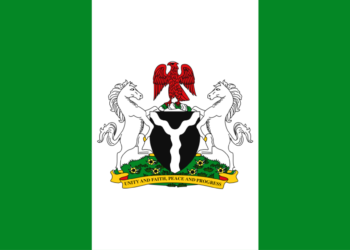In a stirring address at the launch of Africa 2063: Creating the Future We Want, Nigeria’s Honourable Minister of Finance and Coordinating Minister of the Economy, Mr. Wale Edun, positioned intra-African trade as the cornerstone of the continent’s economic transformation.
The event, held in Lagos, served as both a tribute to the late Osaze Osifo—a revered investment executive and advocate for African progress—and a clarion call for a unified approach to unlocking Africa’s vast economic potential.
Edun’s remarks underscored a sobering reality: intra-African trade constitutes a mere 10% of the continent’s total trade, a stark contrast to regions like the European Union, where intraregional trade accounts for nearly 70% of commerce.
This disparity, he argued, represents not only a challenge but an immense opportunity. “Africa’s 1.3 billion-person market is a sleeping giant,” Edun declared. “By improving logistics, strengthening transport links, and modernizing payment systems, we can awaken its promise and drive sustainable growth.”
The Minister’s advocacy comes at a pivotal moment for Africa, as nations grapple with global economic headwinds while seeking to harness the potential of the African Continental Free Trade Area (AfCFTA).
Launched in 2021, the AfCFTA aims to create a single market for goods and services, but its success hinges on overcoming entrenched barriers—fragmented infrastructure, bureaucratic bottlenecks, and inefficient cross-border payment mechanisms. Edun emphasized that addressing these hurdles is critical to fostering seamless trade flows and boosting economic integration.
The event’s backdrop, the launch of Africa 2063, paid homage to Osaze Osifo, whose untimely passing in 2012 left a void in African development circles. Described by Edun as a “visionary with a rare intellect,” Osifo championed private sector-led growth and inclusive development.
The book, a compilation of essays inspired by his work, reflects his belief in Africa’s capacity to shape its own destiny. “Osifo’s legacy endures through ideas that prioritize practical, scalable solutions,” Edun noted, linking his vision to the broader goal of economic self-reliance.
Edun also highlighted Nigeria’s ongoing efforts to create an investment-friendly environment, pointing to a recent infrastructure deal that passed a rigorous international value-for-money audit.
This milestone, he argued, signals growing global confidence in Nigeria’s reform agenda under President Bola Tinubu’s administration. “Our commitment to transparency and accountability is yielding results,” he said, citing the deal as a model for public-private partnerships across the continent.
The minister’s address resonated particularly with private sector attendees, who see intra-African trade as a pathway to unlocking new markets and reducing reliance on volatile global supply chains.
WHAT YOU SHOULD KNOW
The minister’s focus on intra-African trade aligns with broader continental ambitions outlined in the African Union’s Agenda, which envisions a prosperous, integrated Africa.
The launch event drew a diverse audience, including policymakers, business leaders, and civil society representatives, all united by a shared commitment to Osifo’s vision.
ALSO READ TOP STORIES FROM VERILY NEWS


















